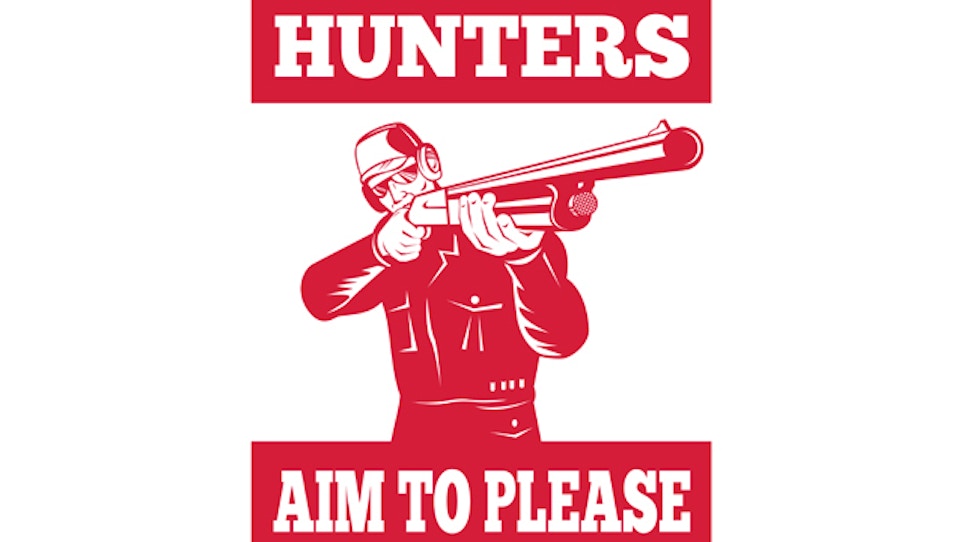By NICK SWEDBERG | Associated Press
SPRINGFIELD, Ill. (AP) — Illinois hunters and outdoors enthusiasts see Gov. Bruce Rauner as a potential new ally in Springfield as they eye legislation this session that includes measures to ban the use of drones to track wildlife, allow silencers at gun ranges, expand coyote hunting to crossbows and resurrect a bobcat hunting season.
They're hoping Rauner, a hunter and fisherman who frequently touts his love of the outdoors, will bring a friendly perspective to natural resource issues and dozens of proposed new laws related to guns and hunting.
“I think he is sympathetic to the outdoors, being a hunter and a dog owner himself,” said George Fleischli, a registered lobbyist who represents outdoor recreation organizations.
At the same time, the sportsmen fear the state's budget crisis will cast a cloud over the management of state parks and agencies that regulate their activities. They are banking on promises they say Rauner made to address problems at the Department of Natural Resources, encouraged by his appointment of former state Rep. Wayne Rosenthal, a fellow hunter and sportsman from Morrisonville, as the new DNR chief.
Under Rauner's proposed budget for the coming year, the DNR's operations budget would be reduced by $8 million, with most of the savings coming from managing staffing levels. The budget for conservation police would be reduced by $3 million. Grants that help pay for forest stewardship would drop by $2.1 million.
“I don't think the state legislators will accept this budget proposal the way it is,” said Scott Bryant, president of the Illinois Federation of Outdoor Resources, a nonprofit association that represents hundreds of individual members and organizations with an interest in recreation.
Bryant said the outdoorsmen understand that all state agencies face budget cuts, but he said they trust Rauner will live up to his vow to help the DNR at a campaign stop in Quincy last fall. “Promises were made,” he said.
Rauner, who made a fortune as a venture capitalist from the wealthy Chicago suburb of Winnetka, has become known for sporting flannel shirts and a Carhartt outdoors jacket. He spoke often on the campaign trail about his love of hunting and fishing, which he says he learned from his grandfather. Rauner's personal Facebook page features a photo album of his accomplishments as a sportsman. He owns about 23,000 acres of ranchland in Montana and Wyoming, and advocates for open land conservation.
“He hunts birds, hikes, loves riding his Harley, and jumps at every opportunity to fish,” according to the biography on his campaign website.
The Republican is likely to bring a different approach to outdoors issues than his predecessor, former Gov. Pat Quinn. The Chicago Democrat was a gun control advocate and vetoed legislation in his final days in office that would have brought bobcat hunting back to Illinois for the first time in more than 40 years.
Rauner spokeswoman Catherine Kelly declined to comment about the governor's sympathies toward fellow hunters. She said he will carefully consider any legislation that crosses his desk.
Kelly said the more than $242 million budgeted for the DNR “allows for state parks and campgrounds to remain open and keeps hunting and fishing licensing the same.” Tough decisions were made at every level to help close the state's $6 billion budget hole, she said.
The DNR and others advocated for the bobcat hunting bill last year, saying that the once endangered species has rebounded enough that its population needs controlling. Opponents, including the Humane Society, rejected the argument, contending that hunters were just out for trophies. The sponsors have refiled the bill this year.
Proponents of the silencer legislation say it will help prevent hearing damage at gun ranges, while opponents argue the muffling could contribute to more gun-related deaths.
The drone-ban bill is intended to prevent a hunter from having an unfair advantage in stalking prey. The state already similarly outlaws dogs to chase or kill deer, baiting animals or shooting birds on the ground.
The bill's sponsor, state Sen. Julie Morrison, a Democrat from the northern Chicago suburb of Deerfield, said she had spoken to a number of hunters and heard “nothing but compliments on this bill because the theory of fair chase is important to them.”
“I would anticipate the governor would be included in that number,” she said, “but I haven't really talked to him.”






